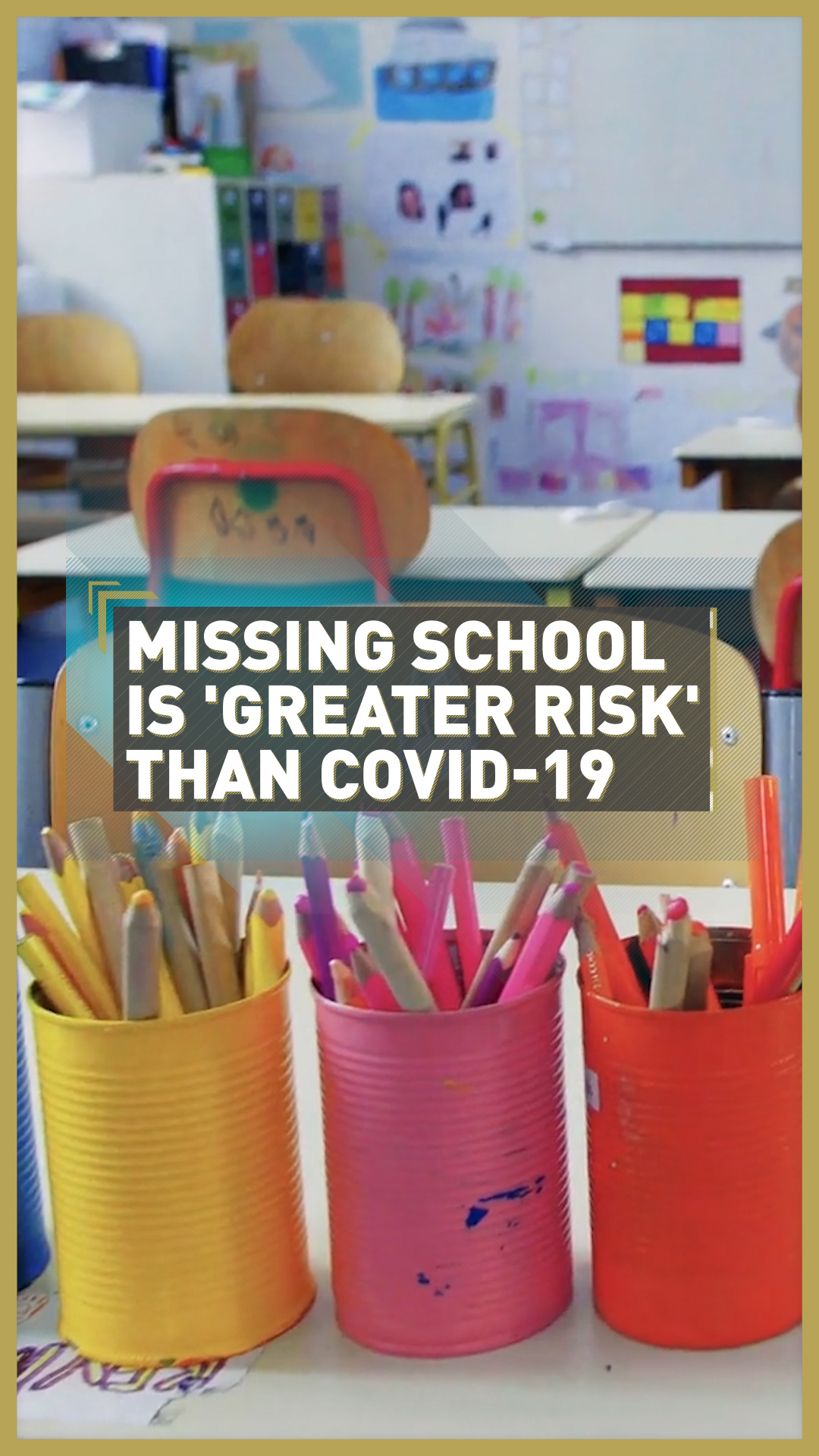01:43

British Prime Minister Boris Johnson on Sunday called on parents to send their children back to school next month after the summer holidays, which he views as a key step to helping the country and its economy recover from the coronavirus lockdown.
"The risk of contracting COVID-19 in school is very small and it is far more damaging for a child's development and their health and well-being to be away from school any longer," Johnson said in a statement.
"This is why it's vitally important that we get our children back into the classroom to learn and to be with their friends. Nothing will have a greater effect on the life chances of our children than returning to school."
Johnson followed up on a warning over the weekend from medical advisers who said that students faced bigger risks from missing out on their education than from catching the virus.
Although England, Scotland, Wales and Northern Ireland have been making their own health decisions during the pandemic, all of the UK's Chief Medical Officers released a joint statement advising children on their imminent return to schools. The statement provided evidence showing with no schooling, there could be a lack of opportunities and a rise in inequalities, which may lead to an increase in physical and mental health issues.
Many parents, teachers and unions are unsure whether the decision by prime minister Boris Johnson to get children back into classrooms is safe during the COVID-19 pandemic – but Whitty, England's chief medical adviser, is adamant.
"The first thing to say really clearly is that there is overwhelmingly clear evidence that the chances of children dying from COVID-19 are incredibly small," said Whitty. "And while every single death of a child is an absolute tragedy, the great majority of those very small numbers, both in the UK and internationally, have been in people who've got significant pre-existing health conditions.

Children in England are expected to return to schools after the summer holidays next month. /Reuters
Children in England are expected to return to schools after the summer holidays next month. /Reuters
Schools shut their doors in March, except for the children of key workers, and reopened in June for only a small number of pupils.
Getting students back to school would give parents a chance to return to their workplaces, which the government is encouraging to help the economy recover from its record 20 percent contraction in the second quarter.
"There's also very clear evidence from the UK and around the world that children much less commonly get severe illness and they end up having to be hospitalized if they get symptomatic COVID at probably a rate of less than a tenth of that of the general population."
An opinion poll published by polling firm YouGov on August 4 showed that 25 percent of respondents believed that schools should not reopen in September, with 57 percent saying that children should return to the classroom.
However, infection spreading between school staff members is a concern, and the government wants social distancing to be maintained at all times – not only in the classroom but also in all other environments where people can meet.
Check out our new six-part podcast series Notes on a Pandemic as CGTN Europe finds out how business, science and people have risen to the challenge of COVID-19.
Video editor: Riaz Jugon